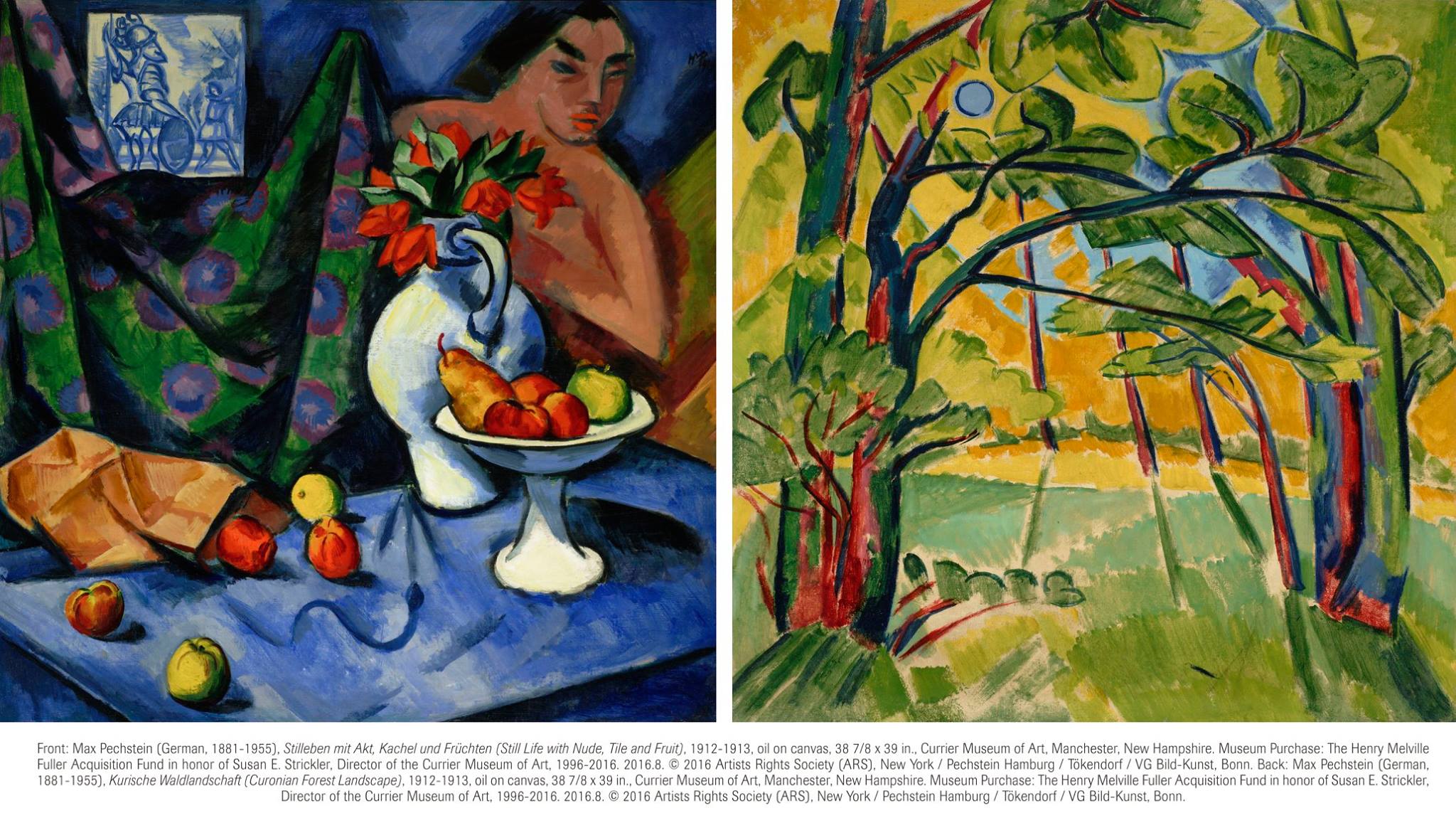
MANCHESTER, N.H.—A new exhibit of Max Pechstein’s “Still Life with Nude, Tile, and Fruit” takes viewers not only behind the scenes of the German artist’s career, but also behind the painting itself.
While previous owners displayed the painting with only the still life and portrait showing, the Currier Museum of Art is showing its reverse side, which reveals a separate but related landscape. The museum has installed the double-sided painting on a pedestal in a specially constructed glass frame that allows viewers to walk around it and see both sides.
“This painting has never been installed before so you can see the front and the back at the same time,” curator Kurt Sundstrom said.
While it’s not unusual for thrifty artists to make use of both sides of a canvas — perhaps flipping to the other side if things aren’t going well — it’s fairly rare to deliberately create a double-sided painting, Sundstrom said. The Fogg Art Museum at Harvard has a two-sided painting by Pablo Picasso, he said, and Pechstein, a German Expressionist who died in 1955, completed about 20 such works.
The landscape side of Pechstein’s painting was created in 1912, when the artist travelled to Lithuania in search of places unspoiled by civilization. The still life, which shows Pechstein’s wife, a bowl of fruit, a Delft tile and a snake, was completed a year later. Based on Pechstein’s memoirs and a close examination of related paintings, officials believe the landscape is likely a depiction of the Garden of Eden, while the still life may show the temptation of Eve.
While much of the still life side features vibrant blues, one small section along the right side is painted in warm greens that carry over to the landscape on the other side.
To put the paintings in context, the exhibition also includes work by Pechstein’s predecessors and contemporaries. Pechstein’s broad brushstrokes in the still life are similar to work by Paul Cezanne, the outlined surfaces evoke Picasso, and the female figure is similar to the primitivist work of Paul Gaugin, Sundstrom said.
The exhibit also features prints by other German Expressionists, who grappled with the rapid industrialism leading up to World War I.
“It opens a window on a historical period that’s fascinating to me. I think these artists sometimes are better than historians and novelists writing about history and what they’re worried about,” he said.
“That’s what I like about these things. They’re rich in narrative. To use original sin in such a creative way is pretty amazing. So I hope people come here and gain appreciation not only for a craftsman — he’s a great painter and colorist — but a person who has an imagination and can tell a story.”